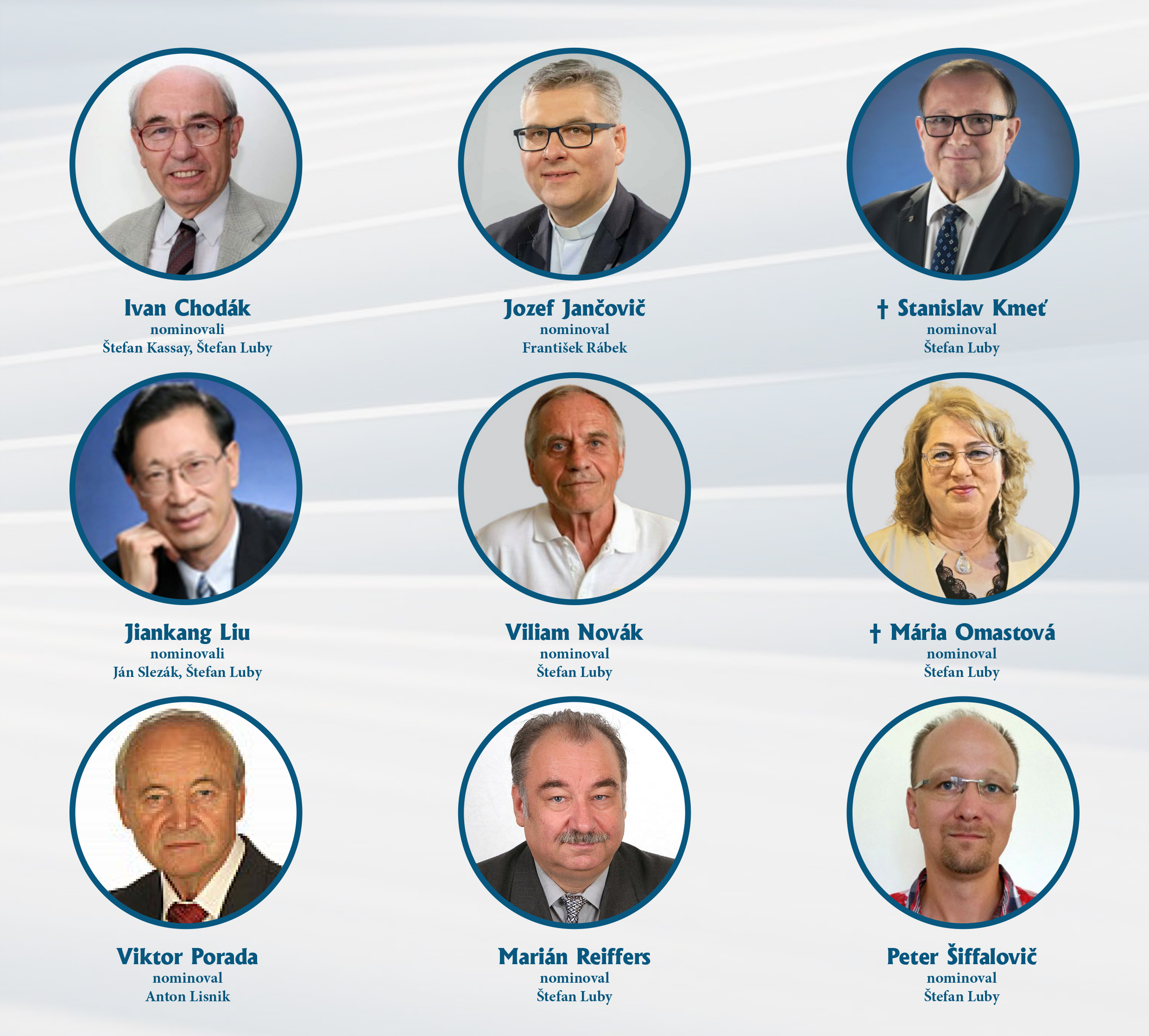Memorandum 2023/2024 - Annual Report of the Cooperation between INTERCEDU and EAVU Salzburg
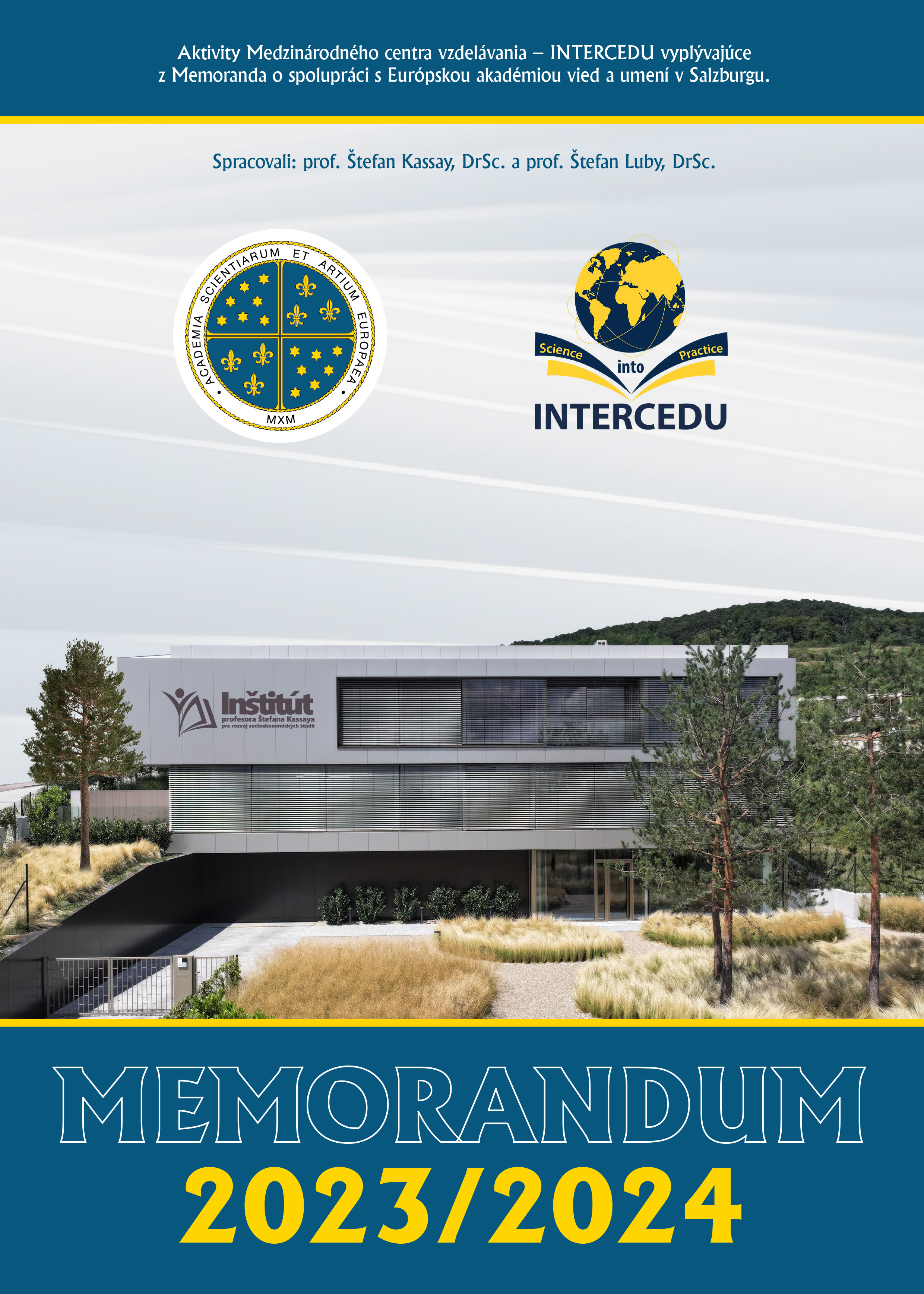
Signing of the Memorandum of Cooperation between INTERCEDU and the European Academy of Sciences and Arts in Salzburg (EAVU)
Professor Štefan Kassay‘s intention in the past was not only to show the necessary procedures for assessing the actual situation in a company, not only to explain how to calculate the number of employees needed to operate a production line and precisely determine the required knowledge to operate the equipment, but also to verify his theories in practice. Based on the facts mentioned above, it seemed important to link the scientific outputs of the EASA members and to disseminate them in the popular science form through the web portal to the recepients. INTERCEDU, a.s. produced and published the Statement on the Escalating Covid-19 Pandemic written by the president of EASA, Dr. Klaus Mainzer, Reintegration of the Capitals and the Emerging Global Governance by Erich Hoedl, at the same time, INTERCEDU has initiated many other activities to promote EASA, this important European Institute. All scientific articles are accessible in English and Slovak language on the website www.intercedu.com. The visit of the President of EASA, Prof. Klaus Mainzer to Slovakia (7.-8. September, 2023) took place according to a pre-agreed program, where the time was effectively used to cover all forms of cooperation presented to the President in the newly built headquarter of INTERCEDU, a.s. in Limbach, near Bratislava. Professor Štefan Kassay proposed the cooperation with EASA, which was agreed by both parties and resulted in signing the Memorandum of Cooperation between INTERCEDU, a.s. and EASA.
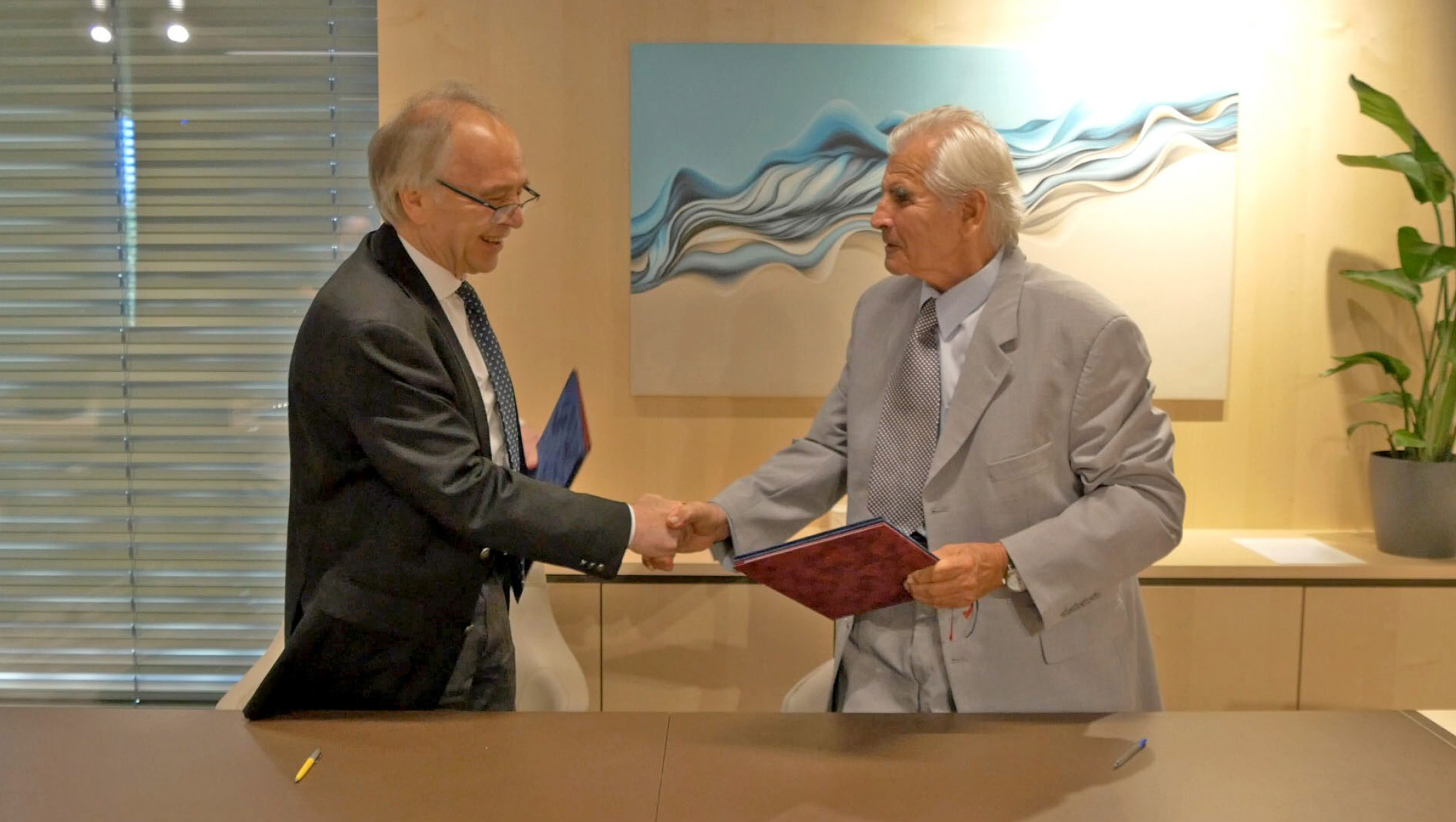
Professor Klaus Mainzer, President of EASA and Professor Štefan Kassay, President of the International Center of Education-INTERCEDU, a.s., signing the Memorandum of Cooperation between the two institutions on 7 September 2023 at the headquarter of INTERCEDU in Limbach.
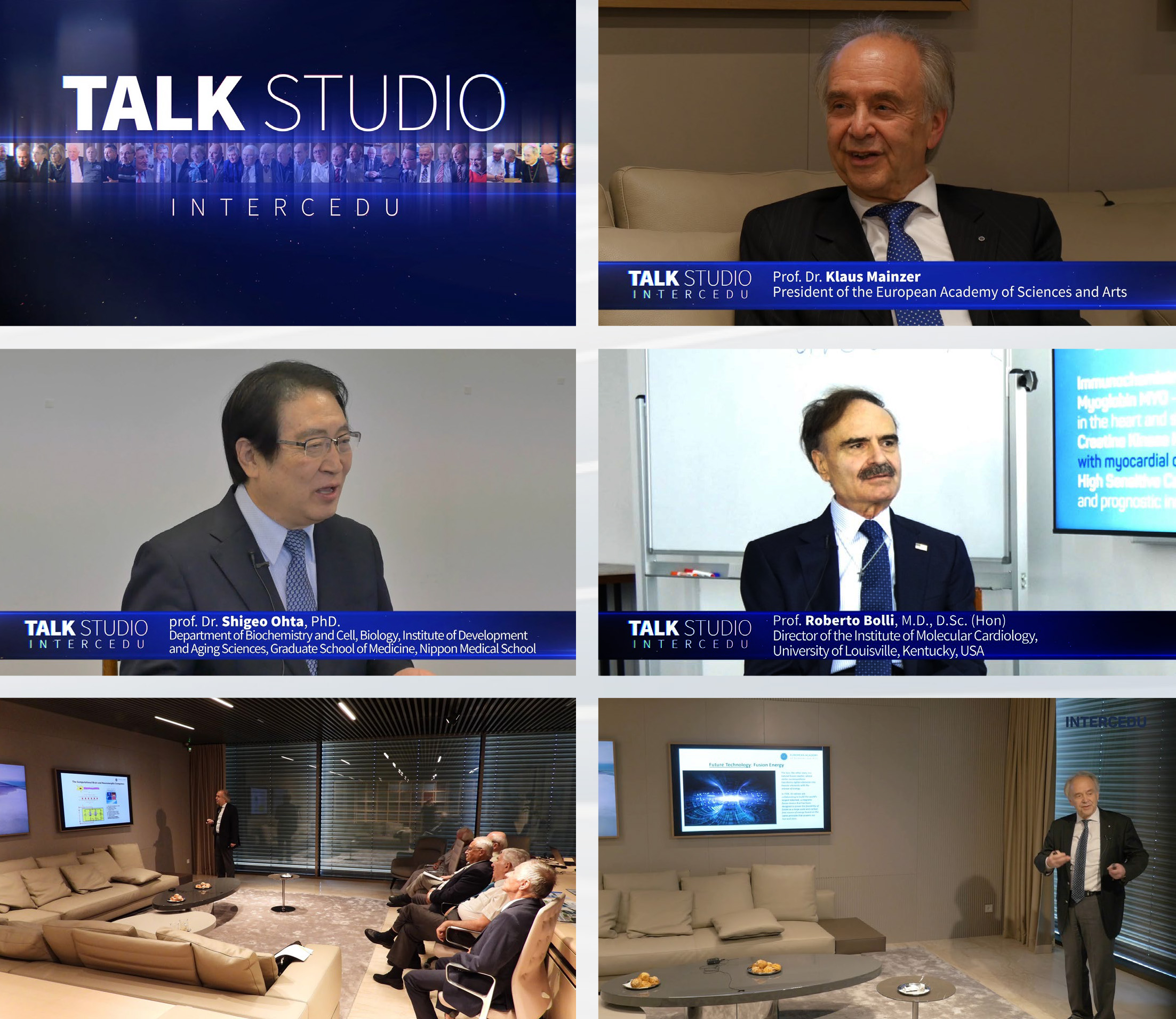
Evaluation of cooperation between INTERCEDU and EASA in 20023/2024
Number of cooperation projects between EASA and INTERCEDU were implemented in 2023/2024, for example, promotion of valuable scientific works by authors and members of the EASA, Nobel Prize winners and European scientists in the global space through the INTERCEDU web portal. In terms of maintaining the qualitative parameters of the content of EASA sections and its presentation in a global multimedia dimension, EASA was presented as a source of knowledge in the European space with scientific articles ccording to the EASA roadmap. Thanks to cooperation with EASA, a new format of a discussion show called Talk Studio INTERCEDU was produced in English language. In the period 2023/2024 four parts were broadcast; two of them with Professor Klaus Mainzer, President of the European Academy of Sciences and Arts in Salzburg, moderated by Professor Štefan Luby and Dr. Lucia Škvareninová. An interview with Roberto Bolli, a top American scientist in biomedical sciences and cardiovascular medicine, and Professor Shigeo Ohta, a Japanese biochemist and father of hydrogen biomedicine, moderated by Professor Ján Slezák. The total footage of the shows is 128 minutes. INTERCEDU presented a lecture by Prof. Klaus Mainzer: The Future through Sustainable Innovation - A New Renaissance for Europe.
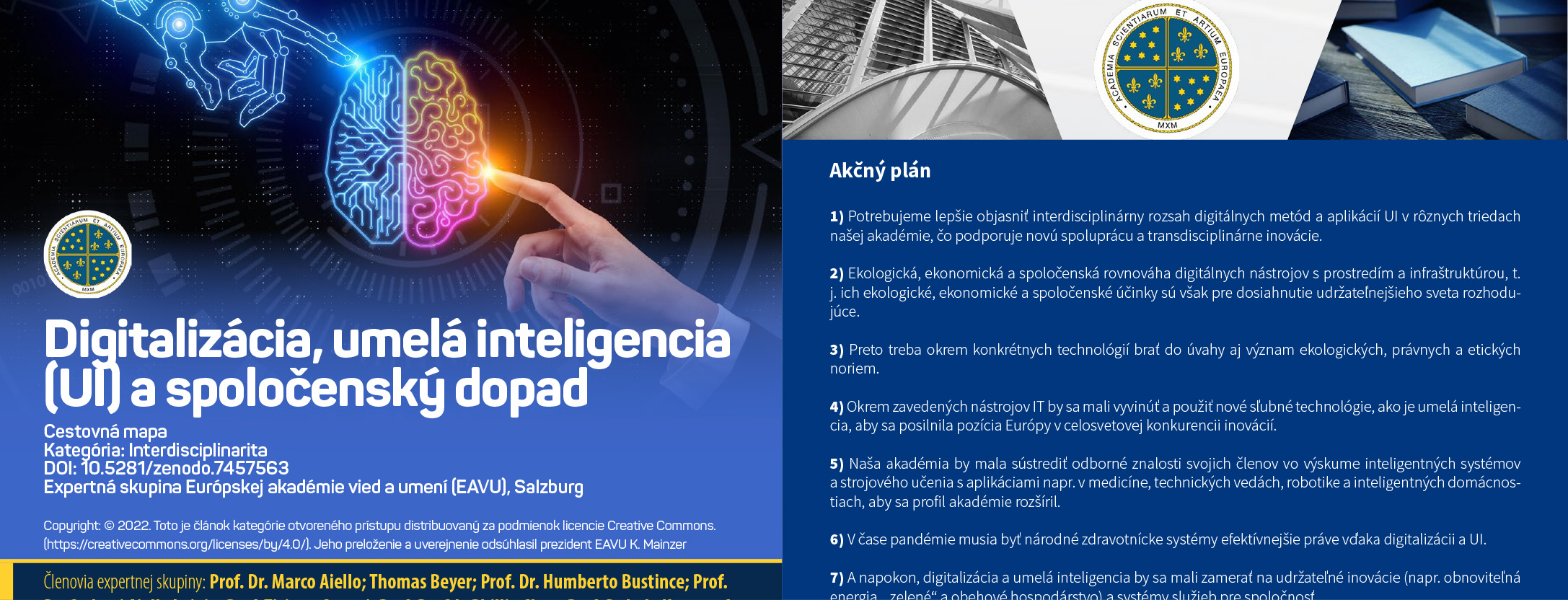
Digitalization, AI and its societal impact
The collaboration with the European Academy of Sciences and Arts in Salzburg continued by issuing scientific articles that followed the direction of artificial intelligence according to the EASA roadmap. Professor Štefan Luby prepared an article by expert group from the category of interdisciplinarity on digitalization, AI and the societal impact of researched areas. The scientific article is addressed to the public who can become familiar with the basic aspects of AI, but also for experts, because it draws attention to new horizons in the field of artificial intelligence. In addition to traditional fields of research such as medicine, technical sciences, robotics and smart homes, potential of artificial intelligence in culture and cultural heritage is significant. This scientific work is published in Slovak language and accessible on the website www.intercedu.com.
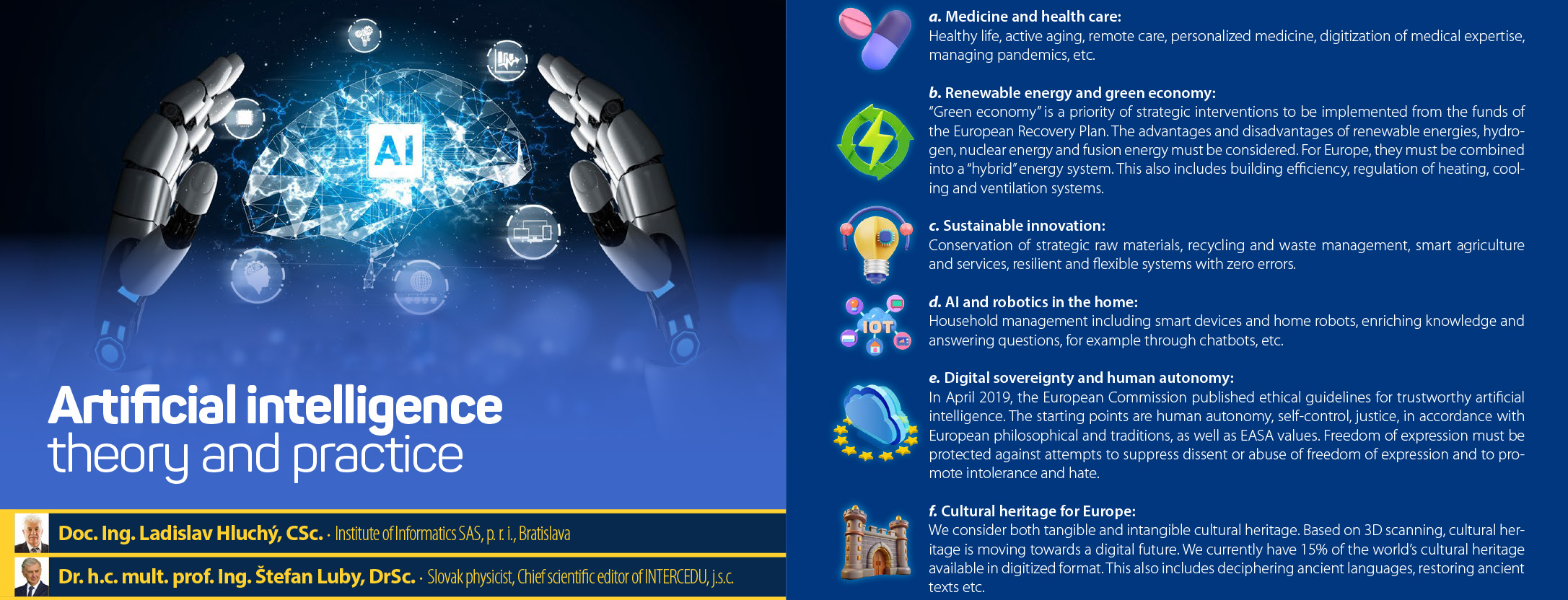
Artificial Intelligence – Theory and Practice
Professor Štefan Luby, in collaboration with Associate Professor Ladislav Hluchý, Candidate of Sciences from the Institute of Informatics of the Slovak Academy of Sciences-SAS (national institution which undertakes scientific research) have also prepared a second article entitled Artificial Intelligence – Theory and Practice. Documents are available in both languages, Slovak and English. The scientific article Artificial Intelligence – Theory and Practice is the most read article on INTERCEDU website platform in 2024 with a total number of views 9,000.
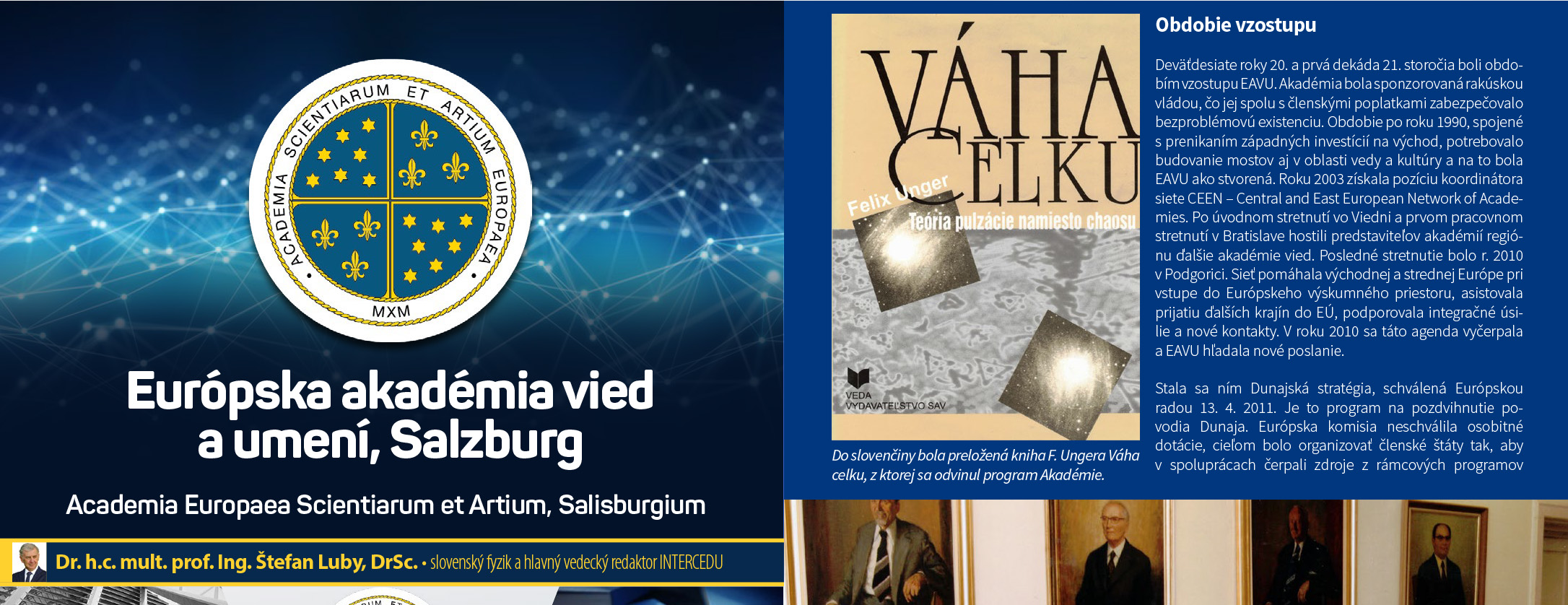
European Academy of Sciences and Arts in Salzburg
Based on the Memorandum of Cooperation between INTERCEDU and the European Academy of Sciences and Arts in Salzburg, Professor Štefan Luby prepared scientific article about the history of the Academy, its mission and direction in the forthcoming future. EASA has seven classes: Class I: Humanities, Class II: Medicine, Class III: Arts, Class IV: Natural sciences, Class V: Social sciences, Law and Economics, Class VI: Technology and Environmental Sciences and Class VII: World religions. The Slovak delegation is one among the most active groups in the Academy. Štefan Luby was invited to become the member of EASA’s Senate and he also served as a Vice-President of the Academy since 2010 until 2019.
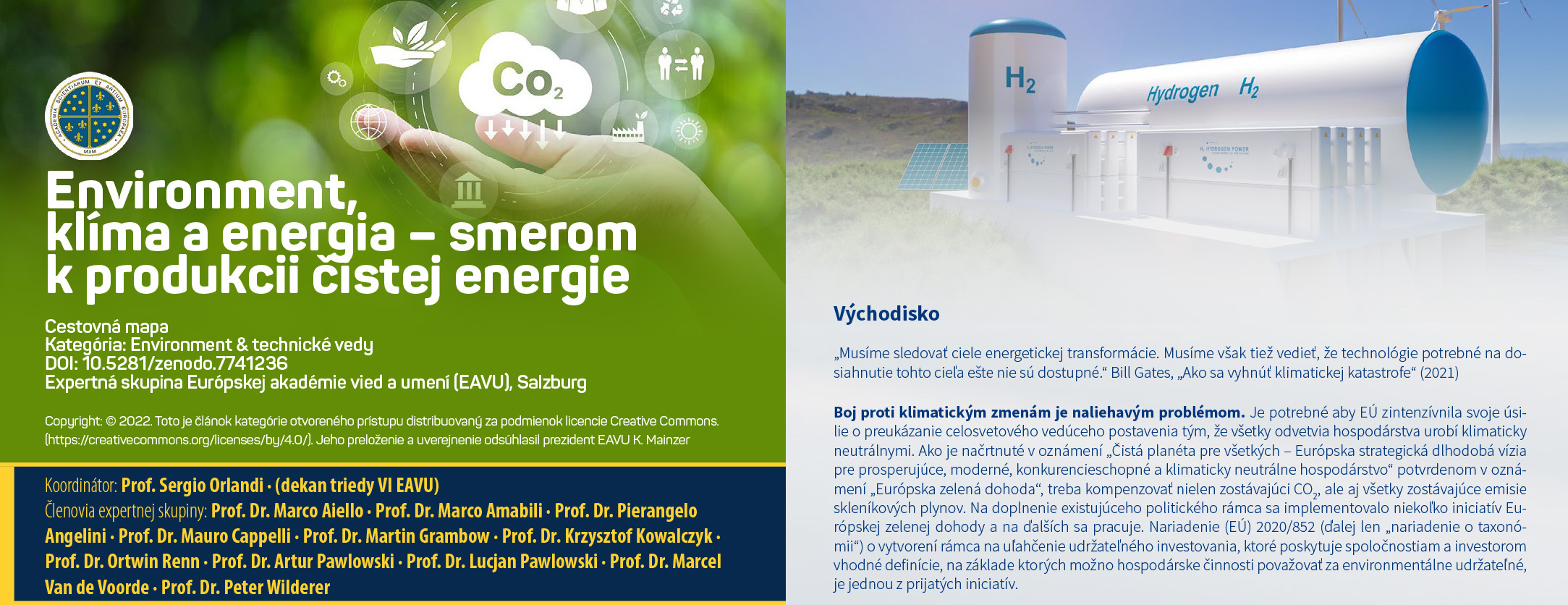
Environment, Climate, and Energy – Toward Clean Energy production
In this study, nuclear energy is strongly pushed, which is not surprising, considering that the coordinator of the study is personally involved in it. However, this does not mean that the reasoning would not hold up, and it is also obvious that at least in the interim period, we have no other effective alternative than nuclear energy. We must follow and fulfill the objectives of the energy transition towards clean energy although we know that the technologies necessary to achieve this goal are not yet widely available. A realistic approach is to pay attention to the goals of COP26 and make the necessary efforts in sustainable energy technology, which is also supported by the European Commission.
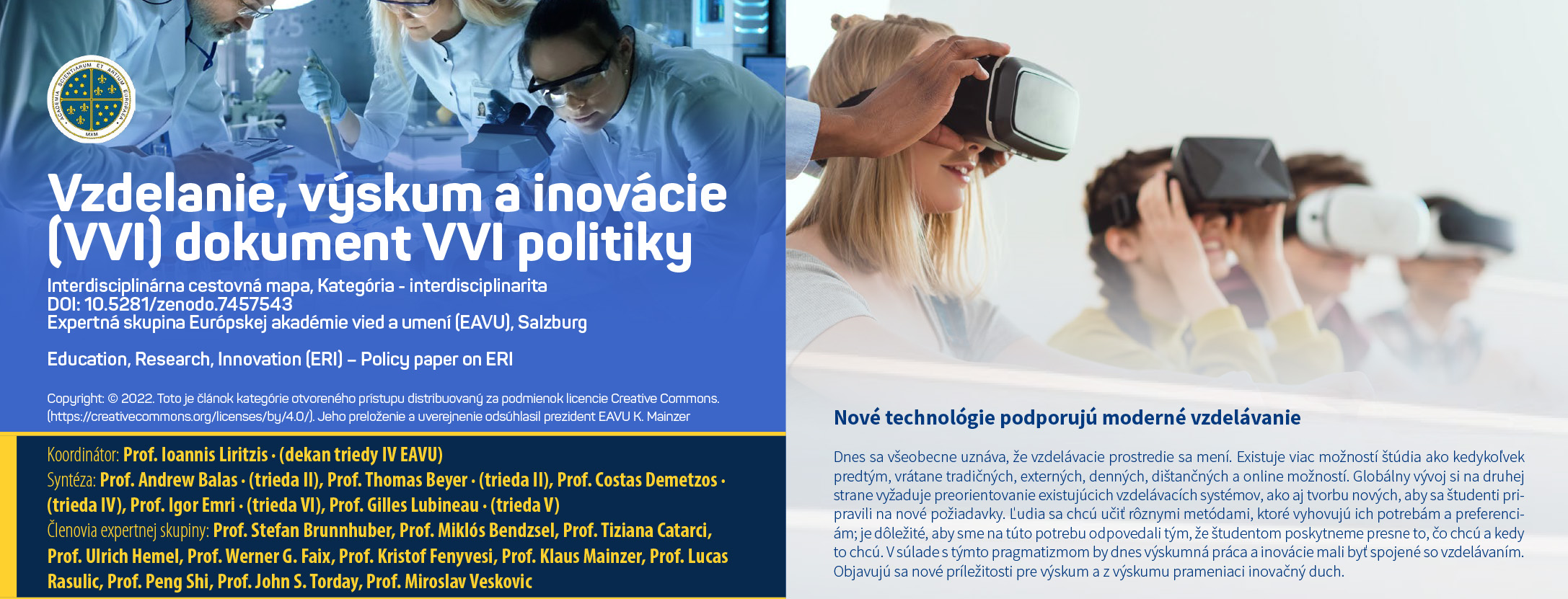
Education, Research and Innovation Policy Document – Expert Group of the European Academy of Sciences and Arts, Salzburg
EASA has established several expert groups during the 5-year term of the Presidium since 2020 to 2025, who have prepared documents to tackle the latest development and issues in the field of education, research and innovation, digitalization, artificial intelligence and its societal impact, environment, climate and energy. INTERCEDU has published the first document in accordance with the mutual commitments arising from the Memorandum of Cooperation with EASA. The document outlines the importance of digitalization, interdisciplinarity, virtual educational environment and connections with the pillars of Horizon Europe. At the same time, the role of mathematics should be elevated, since its importance has not been appreciated in our country in recent decades.
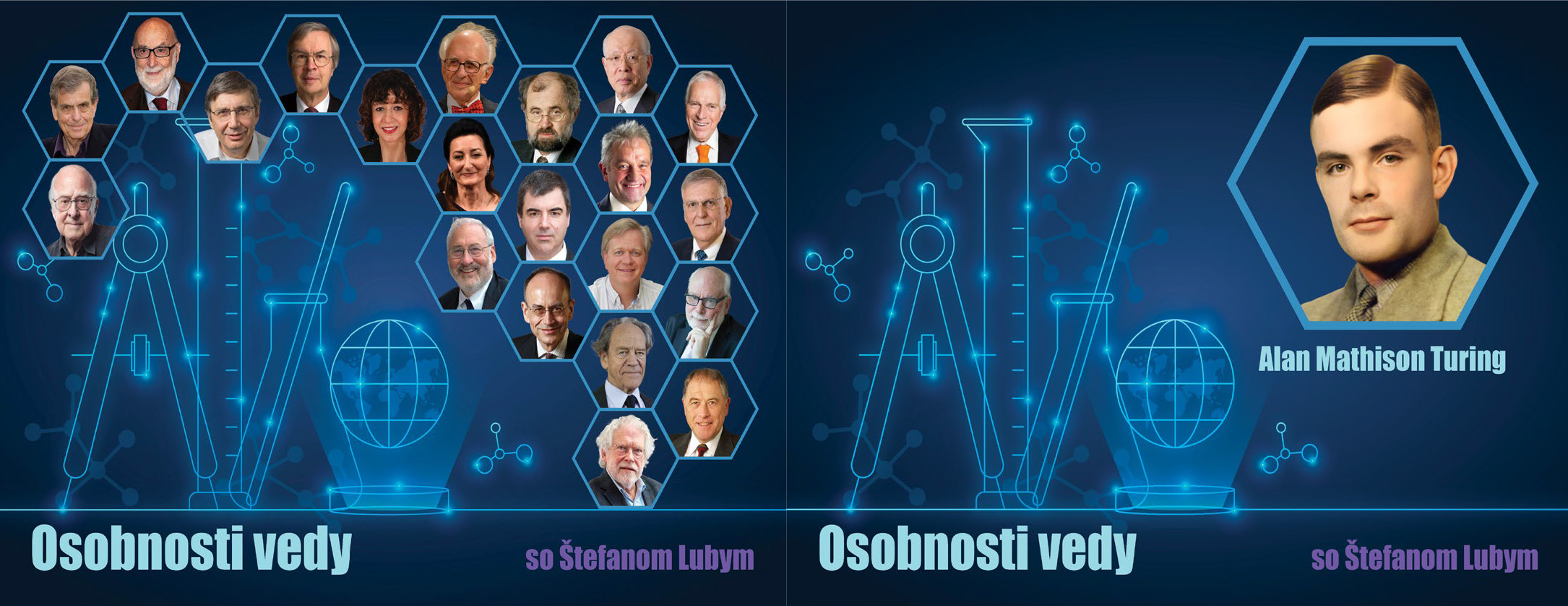
Personalities of Science with Štefan Luby
Personalities of Science with Štefan Luby is a new program broadcast twice a month through the multimedia portal intercedu.com. In the upcoming episodes, the author presents a prominent figures of the Academy, including its founders, former presidents, protectors appointed by the European Academy of Sciences, the heads of states in which the Academy operates through its delegations, laureates of the Academy’s Tolerance Prizes and, last but not least, the most prominent members of the Academy – scientists and artists, among whom Nobel Prize laureates hold an exceptional position.
Working trip to Salzburg
During the two-day working trip of the President of INTERCEDU, Prof. Štefan Kassay with the former Director of Education Dr. Lucia Škvareninová, they attended the General Assembly of the Members of the European Academy of Sciences and Arts in Salzburg, which extended the opportunities for cooperation and promoted further exchange of scientific articles between the two institutions. The program of the General Assembly proceeded according to a pre-determined plan, including evaluation of all EASA activities during 2023 and 2024, including the activity organized by INTERCEDU- the conference about Artificial Intelligence that took place in Limbach. The official program organized by EASA during April 5-6, 2024, was attended by more 250 members of the European Academy. President Klaus Mainzer introduced Professor Štefan Kassay- President of INTERCEDU, who has been a member of Academy for a very long time. President of EASA highlighted the importance of the scientific works of Profesor Štefan Kassay, his practical expertise as a famous Slovakian entrepreneur and his complex pedagogical background. Professor Klaus Mainzer also highlighted in front of the international audience the great importance of signing the Memorandum of Cooperation between INTERCEDU and EASA valid for five years. In this context, Klaus Mainzer informed the audience about an interesting proposal suggested by Professor Štefan Kassay to award the members of the European Academy for their individual academic contributions. The audience expressed enthusiasm and appreciated Profesor Kassay ´s proposal with applause. Followingly, Professor Kassay personally handed over number of gold and bronze medals to President Mainzer with his portrait. INTERCEDU members expect that upcoming elections of EASA’s President at the Presidium gathering in March 2025 will bring new opportunies to consider awarding prominent personalities of Academy.
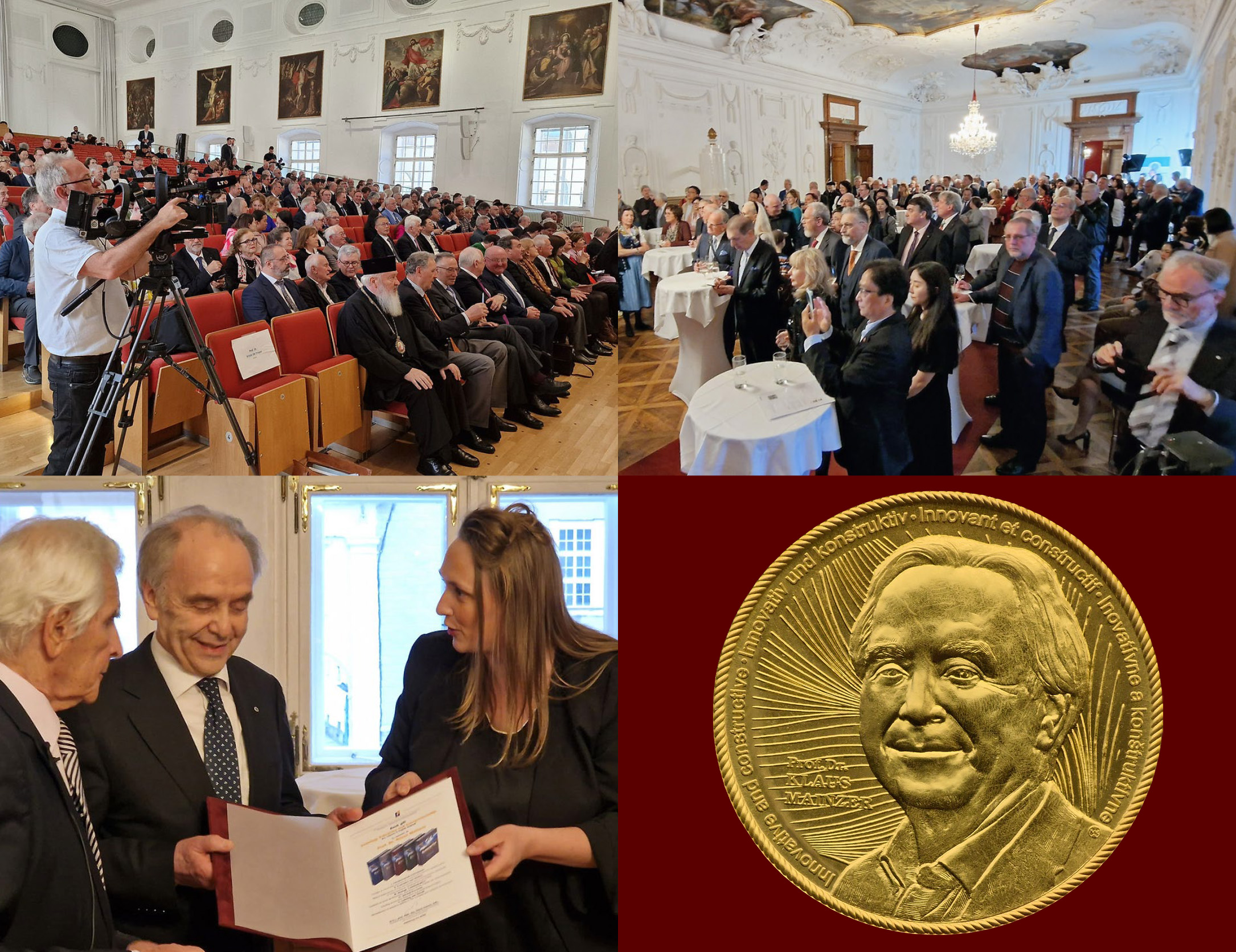
Symbiosis of economic diplomacy and business practice – a new trilogy by Prof. Štefan Kassay, member of EASA
Point 2 of the Memorandum includes the obligation to inform oneself about the results of cooperation. Since both contracting parties have committed to support scientific and social progress in their founding documents, we inform EASA of the mentioned trilogy, which is in the finalization stage and with its structure and focus it fulfills the objectives of the Memorandum Diplomacy, born in the field of politics, gradually took root in business, sports and other human activities. A conference on Diplomacy in Science was held in Prague in 2019 under the auspices of EASA, because we cannot do without it in this sphere as well. And since the art of diplomacy is one of the most difficult, the comprehensive vademecum from Štefan Kassay must be welcomed with all honors. He deals with the theory and practice of economic diplomacy comprehensively, as he is a scientific diplomat, a supporter of science and at the same time a successful entrepreneur.
The introduced work consists of the following parts:
1. The space and environment of our existence,
2. Processes, modeling and methodology
3. Implementation and case studies.
In the first part Š. Kassay reflects on the EU’s transnational political conceptions, which continue to encounter differences between richer and poorer member countries. It is questionable how the Union will continue to function with such large internal gradients. The great initial optimism was unrealistic and the case for German reunification cannot be generalized. In this context, the author touches on the difficult topic of globalization. It is rolling like an avalanche taking on ever larger dimensions. Kassay perceives it as follows: The newly created global social environment is not only extremely competitive, but also extremely intolerant of people, sometimes even destructive. And let’s not forget that the vision of maximum profit is a modern madness. These notes are of course only a very small pars for this 1st volume. Among the processes that the author writes about in the second volume, we also find lobbying. This generally legitimate tool does not always sound good because it is subconsciously associated with corruption. Its opposite is general and corporate ethics. Diplomacy is not only a tool for asserting yourself in the business environment, but also a tool for resolving conflicts, in which self-discipline and self-control play the main role. The author’s credo is: we must not get carried away by the momentary feelings or the unrelenting pressures of our environment, we must control ourselves, no matter what happens.
The environment of diplomacy are congresses and conferences, documented in the book by photo documentation of the author’s meetings with important personalities, including Slovak and foreign presidents. The third part is a set of case studies describing missions in Finland, Estonia, in the European Investment Bank, presentations of book production abroad, cooperation with the developing world - Georgia and Kazakhstan, conferences organized by the author’s foundation, and within them, in particular, the New Europe conference under the auspices of EASA in 2016, when Slovakia presided over the European Council. Leading diplomats and scientists took part there, among them Nobel Peace Prize laureate Lech Walesa. The first and second volumes of the trilogy are being completed, the third is in print and at the same time the translation of the texts into English is beginning. As was the case with the author’s pentalogy Enterprise and Entrepreneurship, this series will be provided to the European Academy of Sciences and Arts and its classes.
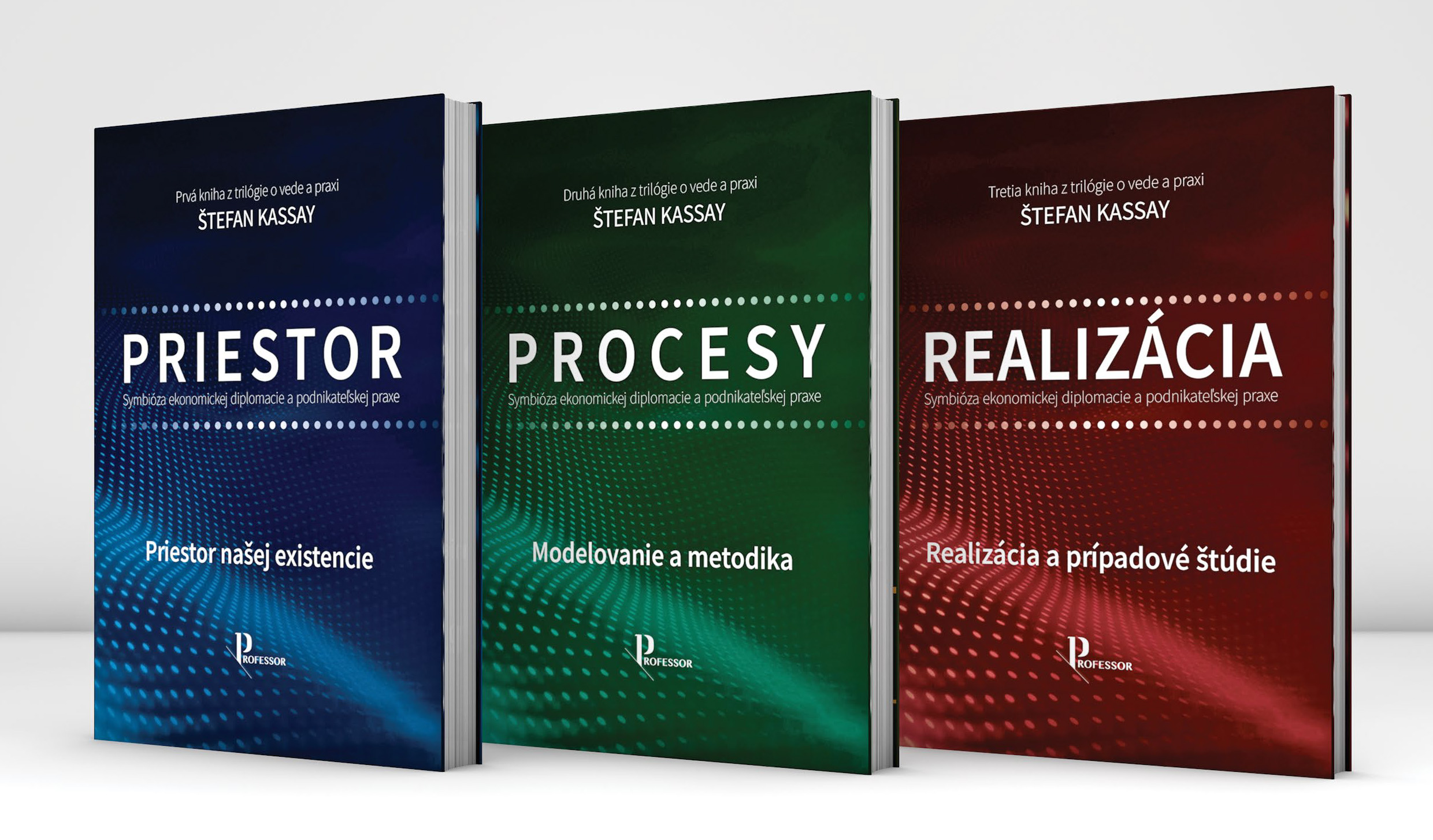
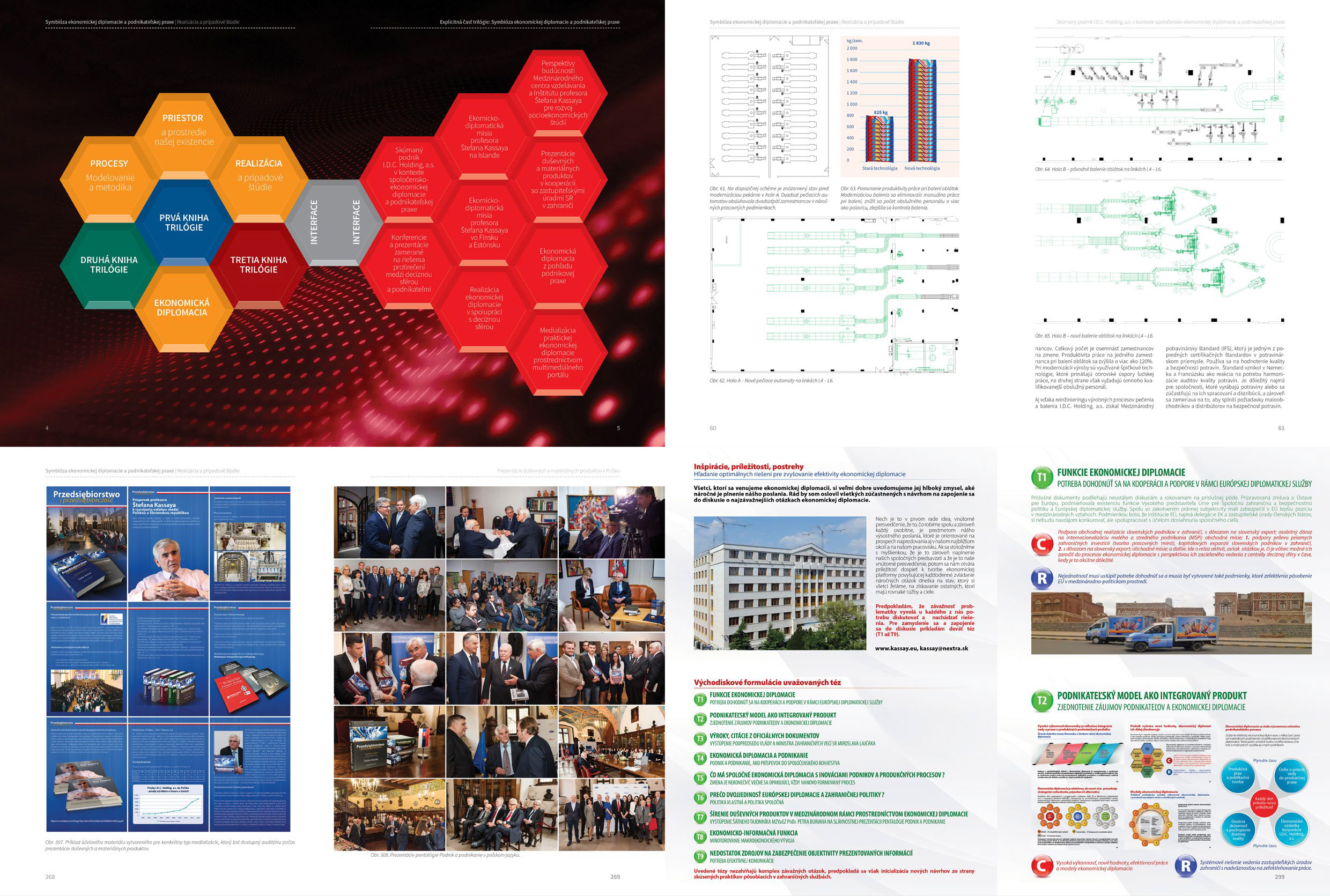
Disruptive Innovations for a Stable Future
At the beginning of 2024, INTERCEDU in cooperation with MM Publishing created new program released periodically (five parts per year) entitled: Disruptive Innovations for a Stable Future. The format is being prepared by the editor-in-chief of the MM Průmyslové spektrum (magazine published once a month) and the first vice president of the Engineering Academy of the Czech Republic – Mr. Roman Dvořák. Disruptive innovations are on the path of their ever-increasing acceptance in companies, inevitably becoming a solid foundation for their promising future. The purpose of the individual reflections is to look at partial disruptive technologies and, using specific examples, to show how they are already changing the shape of the consumers needs and the industry. In 2024, 5 parts were broadcast with a total footage of 70 minutes, bringing interesting topics such as future production, exponential organizations, material engineering, mass customization, robotization and automation.
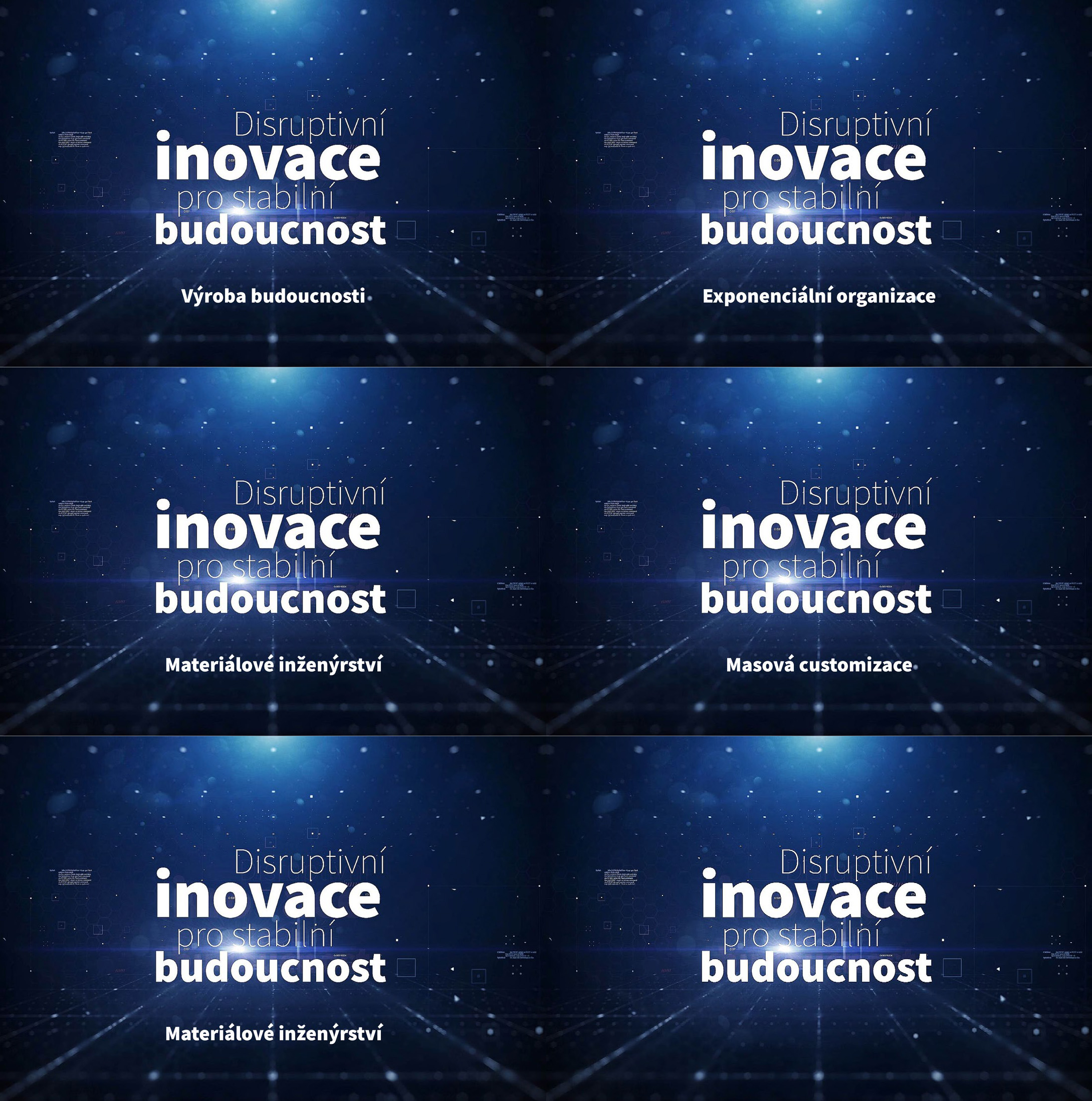
Nominations of new EASA members
Based on the Memorandum of Cooperation between INTERCEDU and EASA, the presidents of both institutions agreed that INTERCEDU will initiate new proposals for EASA members in Slovakia and abroad.
